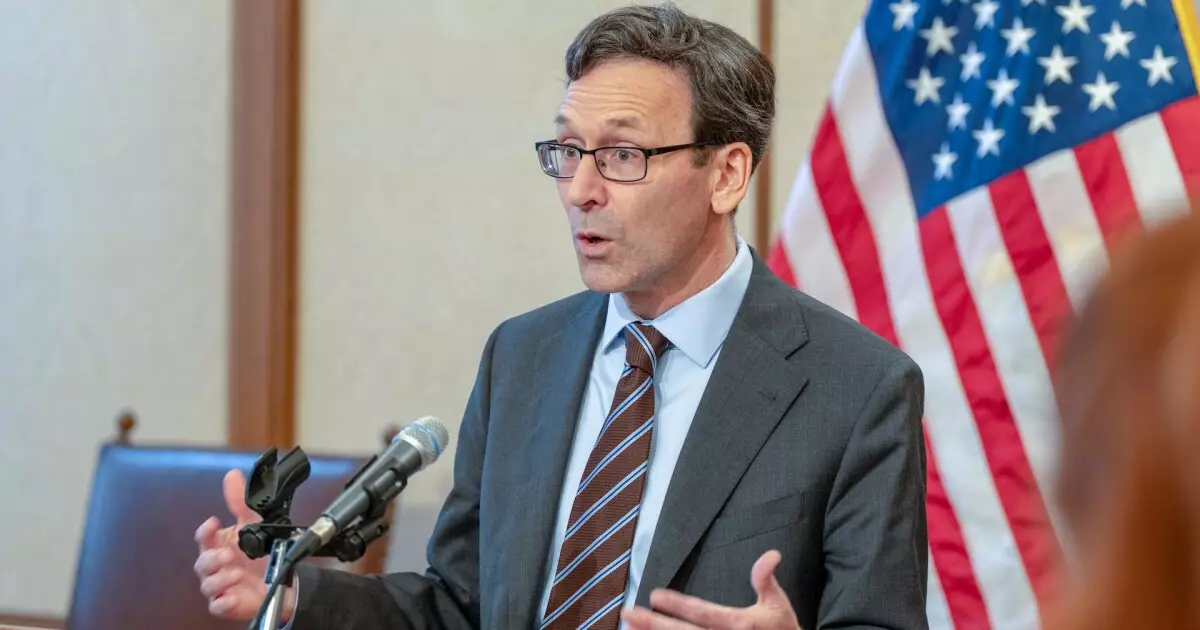The recent denials of disaster recovery funding by the Federal Emergency Management Agency (FEMA) for troubled states like Washington and North Carolina expose a growing chasm in our government’s response to natural disasters. When severe storms and hurricanes are wreaking havoc, citizens expect—but often do not receive—the support they desperately need. It’s a systemic failure that goes beyond bureaucratic red tape; it reveals an underlying lack of empathy and an absence of accountability in federal disaster management.
In November, Washington state experienced a catastrophic bomb cyclone, an event characterized by fierce winds and torrential rains that left more than 600,000 people without power and led to tragic fatalities. Former Governor Jay Inslee’s declaration of a state of emergency and subsequent request for federal disaster funding was, by all accounts, a necessary step. Newly sworn-in Governor Bob Ferguson added regions to the declaration that met every established criterion for disaster relief, yet FEMA’s rejection of financial assistance was swift and unexplained. Such actions raise pressing questions about the criteria themselves—are they genuinely transparent, or are they an arbitrary gatekeeping mechanism?
In stark contrast to Washington’s experience, North Carolina found itself on the receiving end of another unyielding federal response after Hurricane Helene devastated the region. Governor Josh Stein’s request for an extension on reimbursing disaster recovery costs was denied without any rationale, leaving thousands in dire need of assistance to rebuild their lives. The aftermath of Hurricane Helene left an estimated $59.6 billion in damages, and with over 100 fatalities attributed to the storm, one can only wonder how policymakers measure the human cost of natural disasters against funding limitations.
Political Implications of FEMA’s Decisions
The decisions made by FEMA tread a treacherous path, particularly when they emerge amid a political landscape marked by fierce partisanship. Democratic leaders, like Governors Ferguson and Stein, are understandably indignant at this federal disregard for their constituents’ urgent needs. But perhaps what is more concerning is the broader political implications that these denials pose: a federal entity that is not only disengaged but seemingly punitive towards states led by Democratic officials. The gutting of FEMA’s capabilities under the previous administration has created an environment where disaster recovery became a bargaining chip rather than an ethically mandated duty.
The disillusionment extends beyond emotional responses. Federal decisions like these sow distrust in local and state governments reliant on quick responses during crises. The lack of clarity and the opaque decision-making processes serve only to exacerbate feelings of abandonment among those affected by natural disasters. If the federal government continues down this path of inaction, it will only deepen the divides in our already polarized society.
A Commission for Accountability: A Call for Change
What’s sorely needed is a comprehensive review of FEMA’s funding criteria, accompanied by a new commission dedicated to assessing the efficacy of disaster funding. No taxpayer should have to question whether their government will support them in their time of need, especially in life-threatening scenarios. Such a commission could develop clearer guidelines for aid distribution, ensuring that no state suffers from the inadequacies of a politicized funding process.
In focusing on equitable disaster relief, we must also consider the voices of those directly affected. The testimony of citizens who lose everything should weigh significantly in the funding process, overshadowing any bureaucratic protocols that may inhibit swift action. If we allow Lifelines to be subject to political whims, we risk compounding the hopelessness experienced by those left stranded in the wake of disasters.
The challenge is not simply about reclaiming lost resources; it’s about restoring faith in a government that should represent the interests of all its citizens, regardless of political alignment. In an age of existential threats from climate change, the necessity for robust, flexible disaster funding should be seen as morally imperative and an indelible responsibility of government. Our citizens deserve better, and we must demand an overhaul of a system that has failed them so thoroughly in their times of need.

